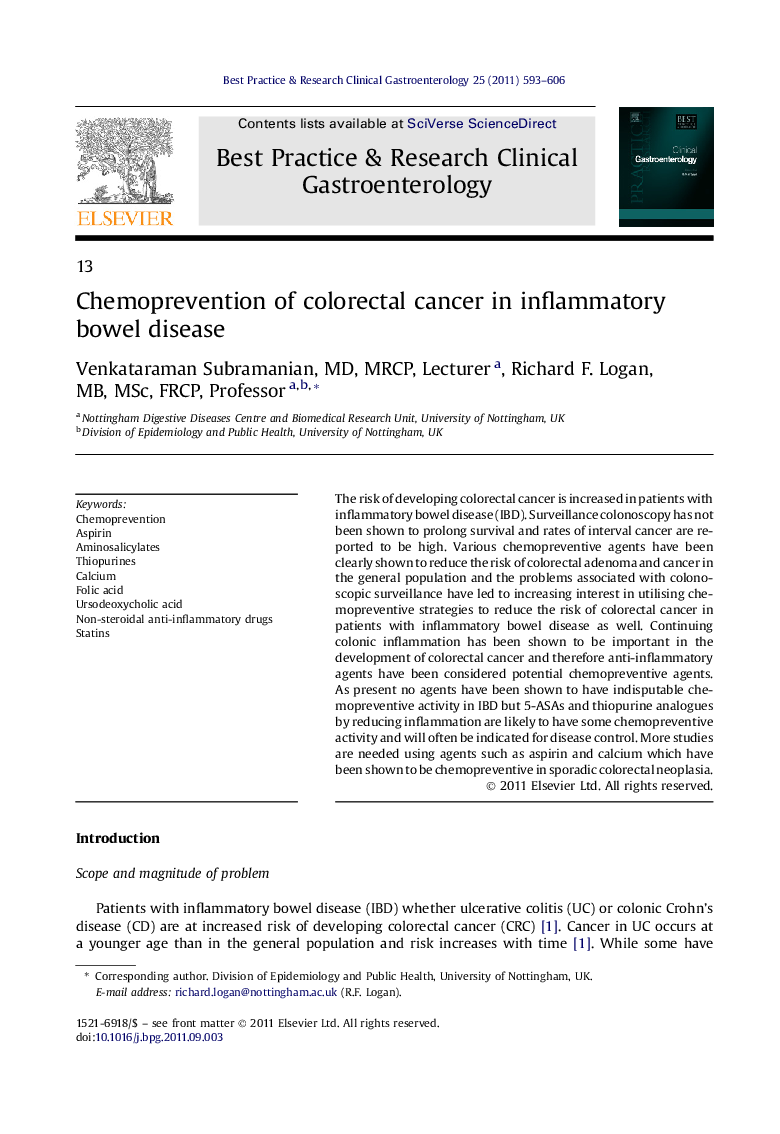| Article ID | Journal | Published Year | Pages | File Type |
|---|---|---|---|---|
| 3254222 | Best Practice & Research Clinical Gastroenterology | 2011 | 14 Pages |
The risk of developing colorectal cancer is increased in patients with inflammatory bowel disease (IBD). Surveillance colonoscopy has not been shown to prolong survival and rates of interval cancer are reported to be high. Various chemopreventive agents have been clearly shown to reduce the risk of colorectal adenoma and cancer in the general population and the problems associated with colonoscopic surveillance have led to increasing interest in utilising chemopreventive strategies to reduce the risk of colorectal cancer in patients with inflammatory bowel disease as well. Continuing colonic inflammation has been shown to be important in the development of colorectal cancer and therefore anti-inflammatory agents have been considered potential chemopreventive agents. As present no agents have been shown to have indisputable chemopreventive activity in IBD but 5-ASAs and thiopurine analogues by reducing inflammation are likely to have some chemopreventive activity and will often be indicated for disease control. More studies are needed using agents such as aspirin and calcium which have been shown to be chemopreventive in sporadic colorectal neoplasia.
